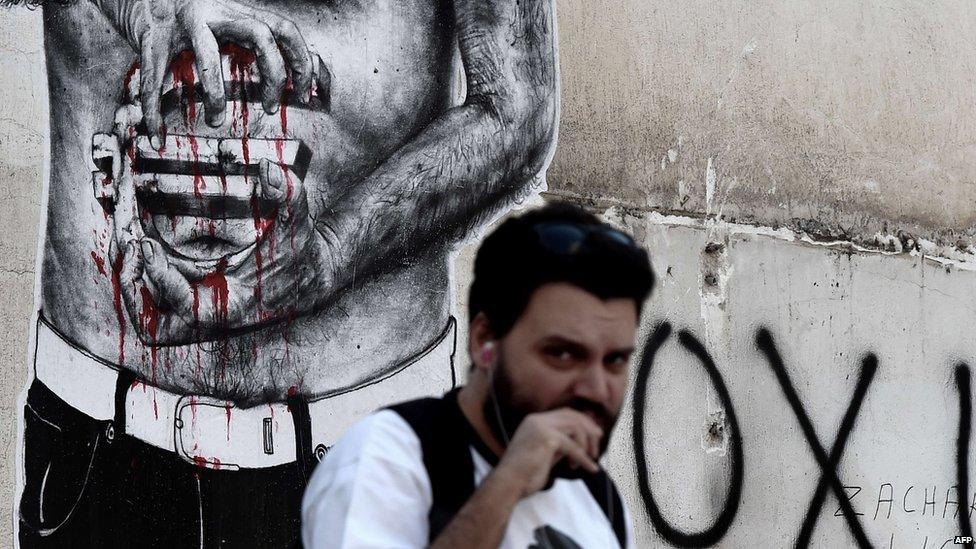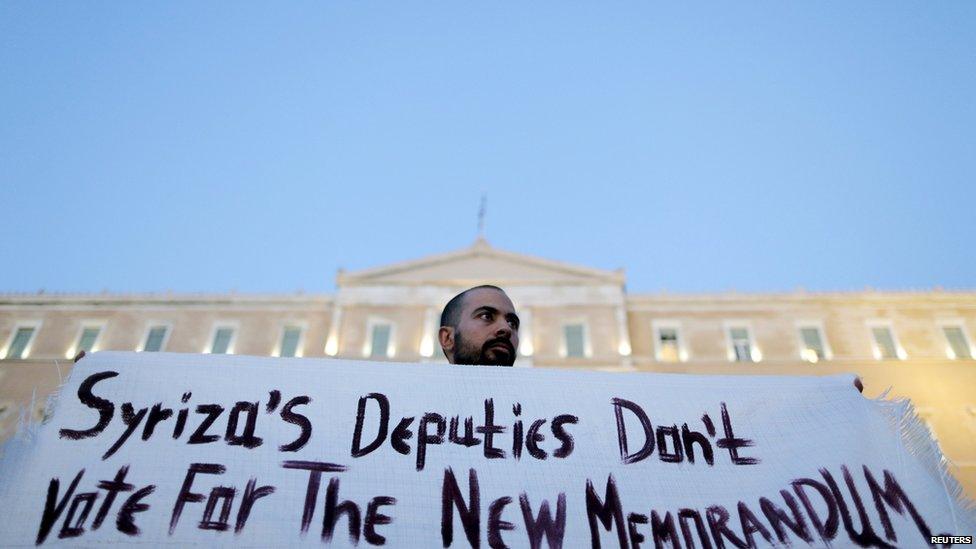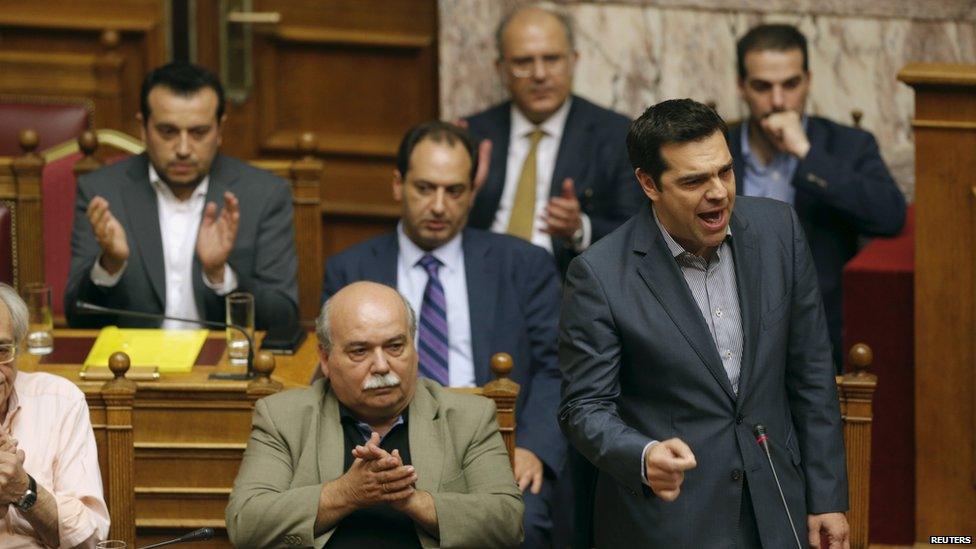Greece debt crisis: Tough test for PM Tsipras
- Published

Many Greeks are relieved to have remained within the eurozone - but at what price?
After his marathon in Brussels, Greek Prime Minister Alexis Tsipras now faces a series of short sprints in Athens. Monday's agreement for Greece to receive another €80bn (£57bn; $88bn) of funding over the next three years brought the briefest possible respite.
Now the government has to pass six sets of reform legislation through parliament by next week before European lenders will sit down at the table again to thrash out the remaining details of the deal and release funds for the cash-strapped government.
Greek MPs have to approve reforms that include VAT rises and the latest overhaul of the pension system.
This will be the first domestic test for Mr Tsipras since bringing back an agreement from the euro area summit that many members of his own Syriza party are referring to as a "humiliation" that turns Greece into a European "protectorate".

Many Greeks remain opposed to the creditors' terms
Dozens of Syriza MPs are likely to refuse to support this first batch of legislation, leaving Alexis Tsipras's government seriously - but perhaps not fatally - wounded.
It is expected that the prime minister will reshuffle his cabinet after the vote to remove ministers who do not support the agreement struck on Monday morning.
The rebellion is likely to leave him in charge of a minority government. His coalition currently has 162 of the 300 seats in Parliament and looks certain to drop well below 150 after Wednesday.
The Independent Greeks party, the junior partners in the coalition, say they may oppose some measures but do not seem intent on quitting the government.
The game changer is that three opposition parties (New Democracy, To Potami (The River) and Pasok) have pledged to support the measures. Early on Saturday, Mr Tsipras gained 251 votes authorising him to seal an agreement with creditors, so he has some room to manoeuvre domestically as long as the opposition backs him.

Greek laws to be passed by Wednesday
Ratifying eurozone summit statement, external
VAT changes: Top rate of 23% to extend to processed food, restaurants etc... 13% to cover fresh food, energy bills, water and hotel stays, 6% for medicines and books
VAT discount of 30% to be abolished on islands, but remotest islands to keep discount until next year
Corporation tax raised from 26-29% for small companies
Luxury tax for big cars, boats and swimming pools up from 10-13%; farmers' tax up from 13-26%
Early retirement to end (phased in by 2022); retirement age raised to 67
Greek statistics authority Elstat to have full legal independence


The rival parties do not want to enter a coalition government at this point as they believe Mr Tsipras should take the responsibility for leading negotiations with eurozone lenders to this point.
Also, the convincing win of the "No" camp in the recent referendum on the lenders' proposals has made it clear that at the moment Mr Tsipras towers over any other domestic political figure. There is a sense that if anyone can convince Greeks to accept a deal that involves more painful sacrifices in order to stay in the euro, Mr Tsipras is the one.

Mr Tsipras faces an uphill task in convincing his supporters of the wisdom of the agreement - both inside and outside parliament
The first batch of legislation should pass comfortably but the Greek prime minister then has a damage limitation exercise on his hands.
His party will aim to regroup and then secure the liquidity that will allow Greece to start paying its debts again.
It will also mean banks can reopen after being closed for more than two weeks. Only if the situation stabilises will Tsipras be able to catch his breath.
Nick Malkoutzis is deputy editor of the English edition of Greek daily Kathimerini